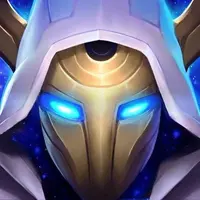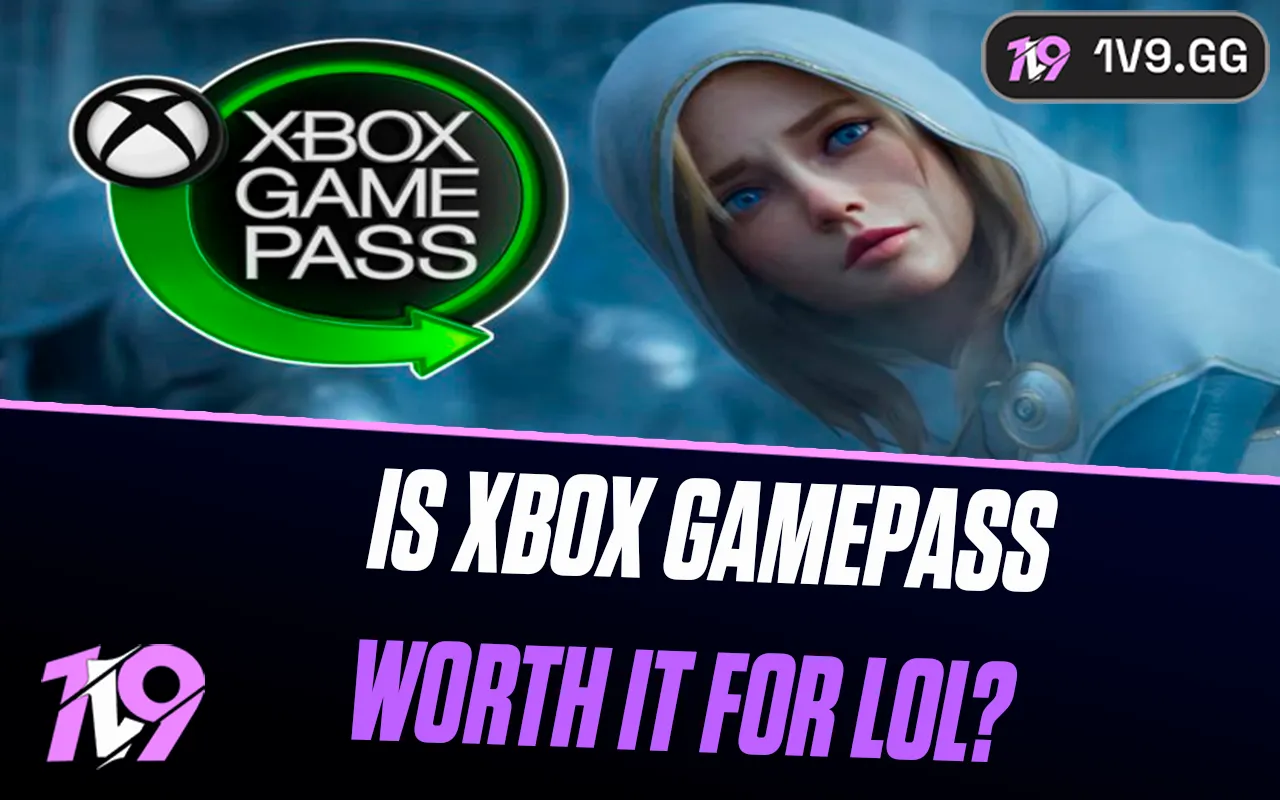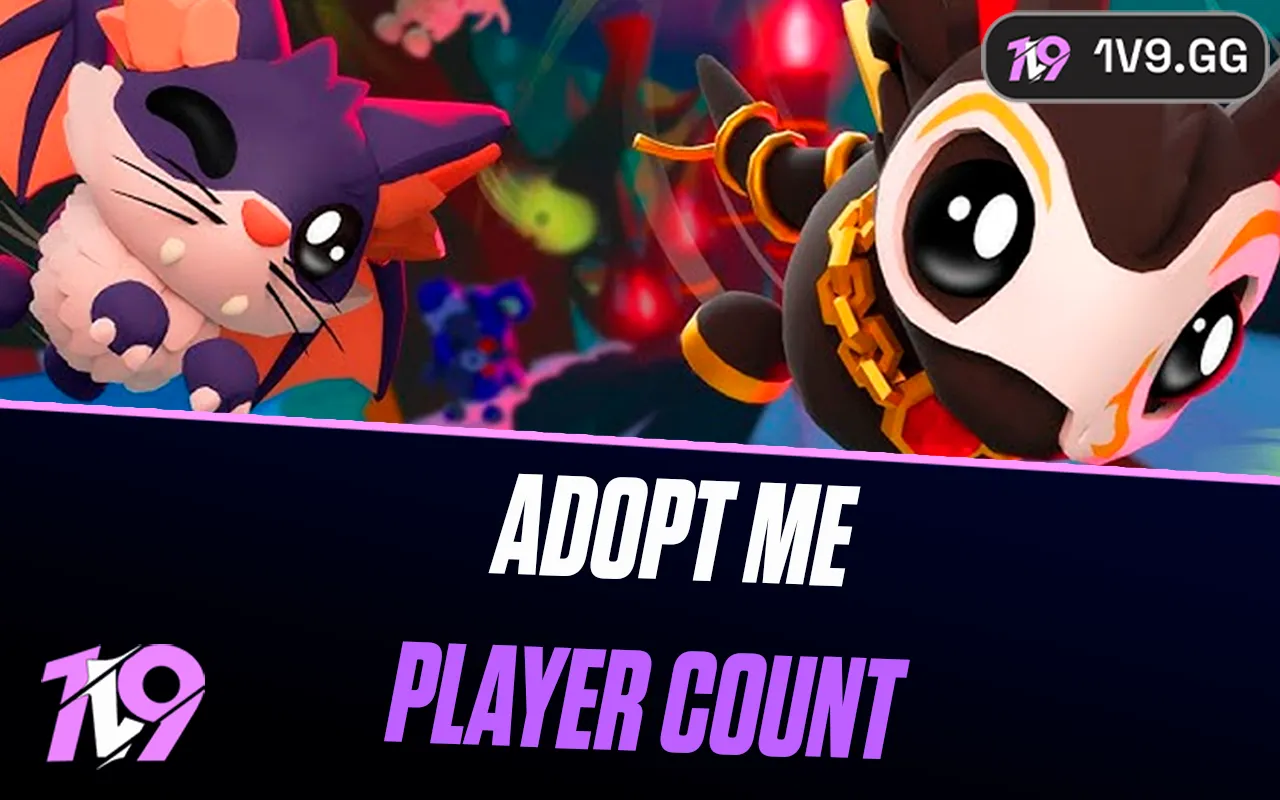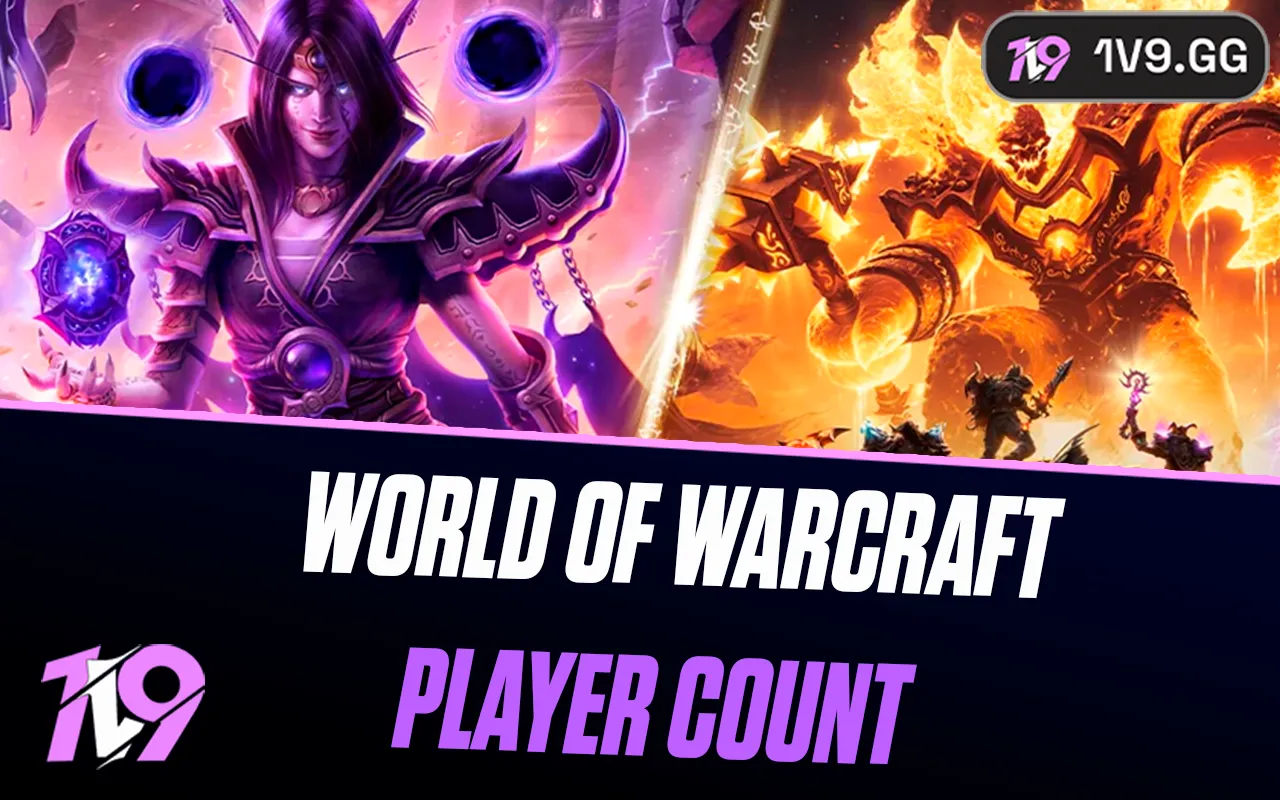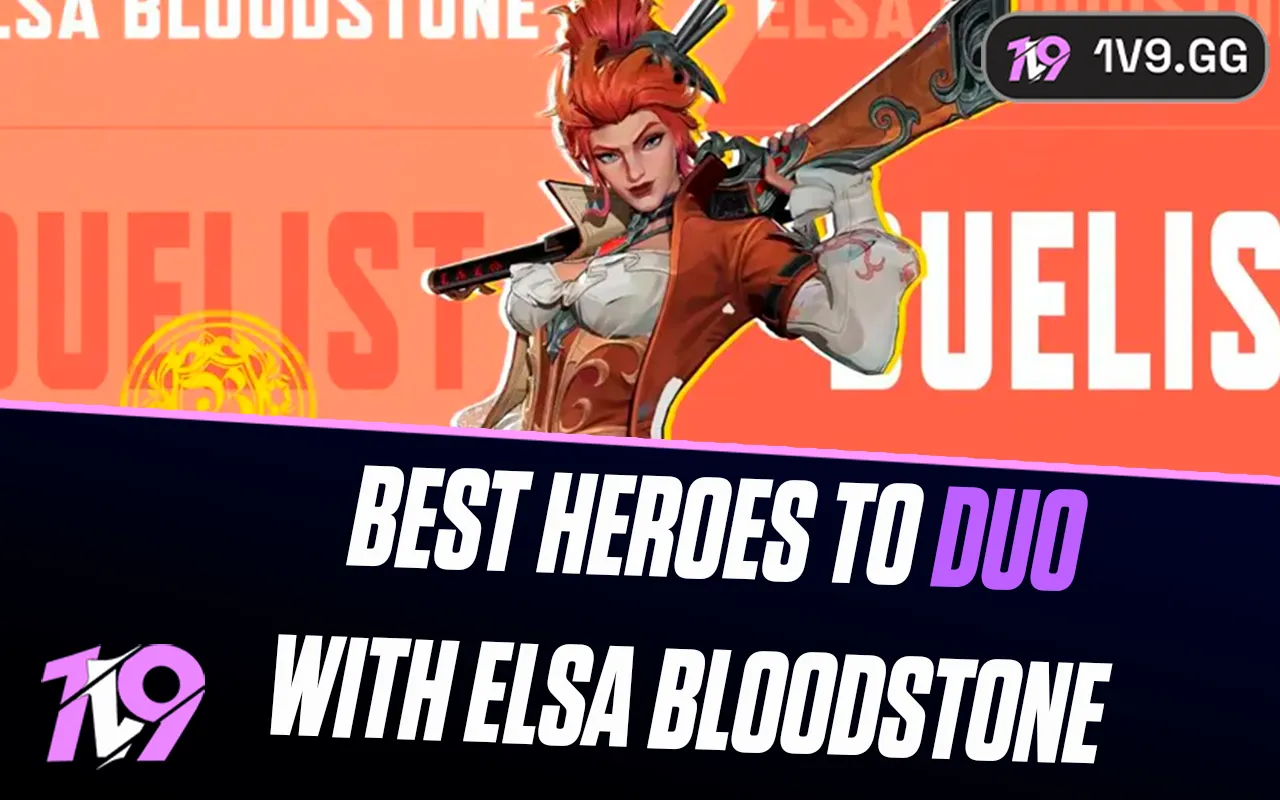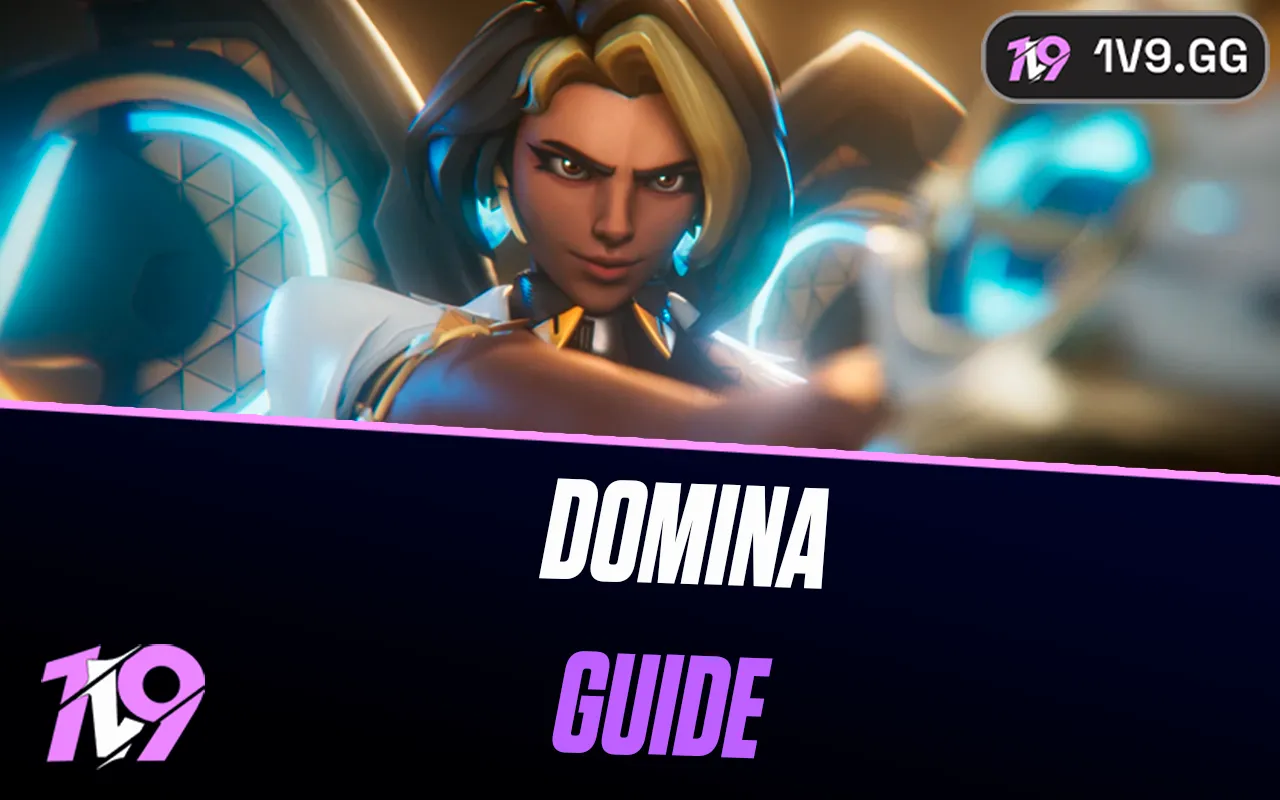- Home
Games
 League of Legends
League of Legends Valorant
Valorant-a6d5b3e156bb.webp) Fortnite
Fortnite Call of Duty
Call of Duty Clash of Clans
Clash of Clans GTA 5
GTA 5 Counter-Strike 2
Counter-Strike 2 Roblox
Roblox Rainbow Six Siege
Rainbow Six Siege Clash Royale
Clash Royale Minecraft
Minecraft Dota 2
Dota 2 Rocket League
Rocket League Genshin Impact
Genshin Impact Squad Busters
Squad Busters Rust
Rust Apex Legends
Apex Legends Pokemon Go
Pokemon Go XDefiant
XDefiant Hay Day
Hay Day LoL: Wild Rift
LoL: Wild Rift Diablo 4
Diablo 4 World of Warcraft
World of Warcraft Destiny 2
Destiny 2 FC 25
FC 25 Marvel Rivals
Marvel Rivals-9ede9dc6b01b.webp) PUBG Mobile
PUBG Mobile The Finals
The Finals Deadlock
Deadlock Forza Horizon 5
Forza Horizon 5 Growtopia
Growtopia Honkai: Star Rail
Honkai: Star Rail 8 Ball Pool
8 Ball Pool Warframe
Warframe Zenless Zone Zero
Zenless Zone Zero Runescape 3
Runescape 3 Path of Exile
Path of Exile Raid: Shadow Legends
Raid: Shadow Legends Lost Ark
Lost Ark WoW: Classic Era
WoW: Classic Era Summoners War
Summoners War WoW: Season of Discovery
WoW: Season of Discovery WoW Cataclysm
WoW Cataclysm WoW: Hardcore
WoW: Hardcore Throne and Liberty
Throne and Liberty New World
New World Mobile Legends
Mobile Legends Escape From Tarkov
Escape From Tarkov Path of Exile 2
Path of Exile 2 Blade Ball
Blade Ball Fisch
Fisch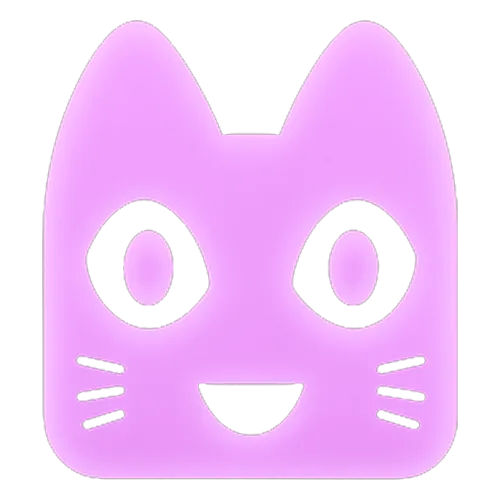 Pet Simulator 99
Pet Simulator 99 Pets Go
Pets Go-d8bcef7708c7.webp) One Piece Bounty
One Piece Bounty Anime Adventures
Anime Adventures Blox Fruits
Blox Fruits Adopt Me
Adopt Me Murder Mystery 2
Murder Mystery 2 Fragpunk
Fragpunk Wuthering Waves
Wuthering Waves Free Fire
Free Fire Teamfight Tactics
Teamfight Tactics Albion Online
Albion Online Black Desert Online
Black Desert Online Honor of Kings
Honor of Kings Brawl Stars
Brawl Stars Arena of Valor
Arena of Valor Call of Duty: Mobile
Call of Duty: Mobile Rematch
Rematch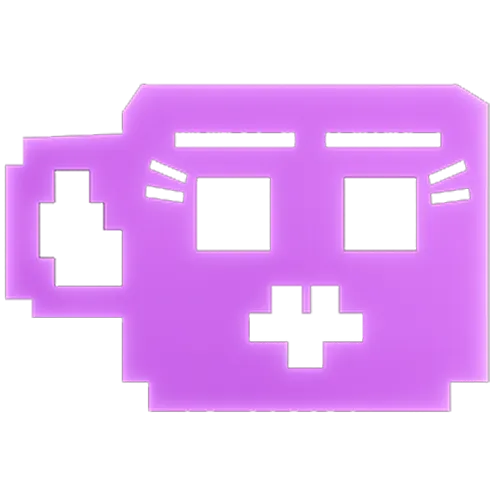 Steal a Brainrot
Steal a Brainrot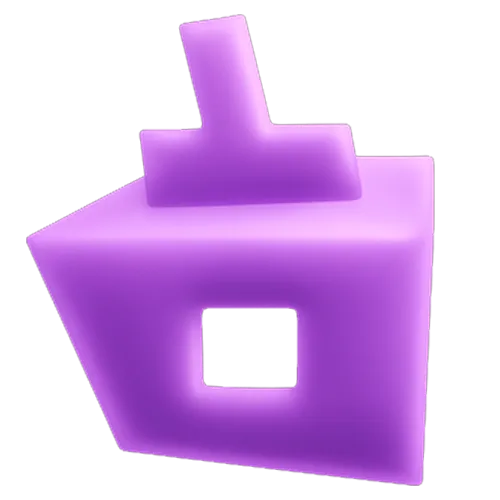 Grow a Garden
Grow a Garden FC 26
FC 26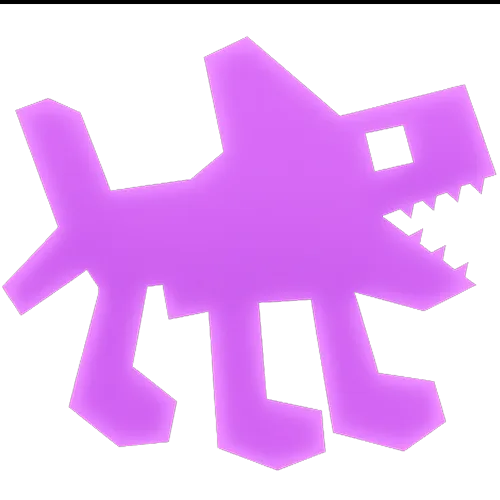 Plants vs Brainrots
Plants vs Brainrots Old School Runescape
Old School Runescape Overwatch
Overwatch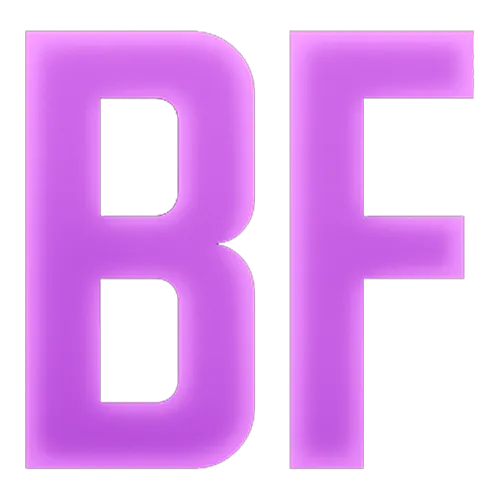 Battlefield
Battlefield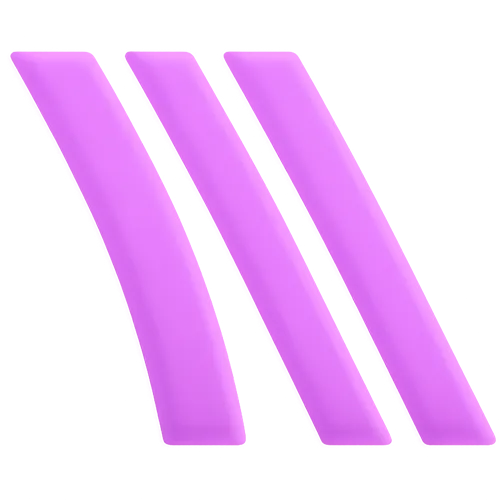 Arc Raiders
Arc Raiders Dragon Ball Legends
Dragon Ball Legends Fallout 76
Fallout 76 Jailbreak
Jailbreak Type Soul
Type Soul GPO
GPO DonutSMP
DonutSMP Escape Tsunami For Brainrots
Escape Tsunami For Brainrots Watcher of Realms
Watcher of Realms Roblox Rivals
Roblox Rivals- Lootboxes
- Become Affiliate
- Blog
- Contact Us
- Sign In

League of Legends Champions By Release Date: A Complete Timeline
Since its start in 2009, League of Legends has grown from just 20 champions to a huge list of 168 as of June 1, 2024. This guide will walk you through the release dates of all these champions, showing how Riot Games has added new ones over the years.
From launching 18 champions in 2010 to adding 9 new ones in 2022, the game has seen a variety of champions with unique skills and stories. Each one brings something special, whether they’re a tank, an assassin, or a mage. Here, we’ll give you a detailed look at when each champion joined the League of Legends universe. Let’s dive into the timeline and explore the evolution of the game’s character roster.
Launching League of Legends: The Original 2009 Champions

When League of Legends first launched in 2009, it wasn’t just a new game—it was the beginning of an ever-expanding universe. Riot Games introduced 20 original champions, laying the groundwork for what would become a diverse and dynamic roster. This foundational set paved the way for the multitude of unique characters that now populate the game, each adding depth and variety to the League experience.
Alpha Week 2: The First 17 Champions
On February 21, 2009, League of Legends introduced its initial cast of 17 champions during its second Alpha release. Iconic characters such as Annie, Ashe, and Ryze were unveiled, setting the stage for what would become a legendary lineup in the gaming world.
Beta Stage Developments
By October 27, 2009, League of Legends boasted a lineup of 40 champions, encompassing fan favorites like Alistar, Fiddlesticks, and Teemo. The close of the year saw the addition of champions such as Nidalee in December, rounding out an impactful inaugural roster. Here’s a breakdown of the champions and their release dates up to the end of 2009:
• Alistar, The Minotaur - Tank / Support - 21/02/2009
• Annie, The Dark Child - Mage / Support - 21/02/2009
• Ashe, The Frost Archer - Marksman / Support - 21/02/2009
• Fiddlesticks, The Ancient Fear - Mage / Support - 21/02/2009
• Jax, Grandmaster at Arms - Fighter - 21/02/2009
• Kayle, The Righteous - Mage / Marksman - 21/02/2009
• Master Yi, The Wuju Bladesman - Assassin / Fighter - 21/02/2009
• Morgana, The Fallen - Mage / Support - 21/02/2009
• Nunu & Willump, The Boy and His Yeti - Tank / Mage - 21/02/2009
• Ryze, The Rune Mage - Mage - 21/02/2009
• Sion, The Undead Juggernaut - Tank / Fighter - 21/02/2009
• Sivir, The Battle Mistress - Marksman - 21/02/2009
• Soraka, The Starchild - Support / Mage - 21/02/2009
• Teemo, The Swift Scout - Marksman / Mage - 21/02/2009
• Tristana, The Yordle Gunner - Marksman / Assassin - 21/02/2009
• Twisted Fate, The Card Master - Mage / Marksman - 21/02/2009
• Warwick, The Uncaged Wrath of Zaun - Fighter / Tank - 21/02/2009
• Singed, The Mad Chemist - Tank / Mage - 18/04/2009
• Zilean, The Chronokeeper - Support / Mage - 18/04/2009
• Evelynn, Agony’s Embrace - Assassin / Mage - 01/05/2009
• Tryndamere, The Barbarian King - Fighter / Assassin - 01/05/2009
• Twitch, The Plague Rat - Marksman / Assassin - 01/05/2009
• Karthus, The Deathsinger - Mage - 12/06/2009
• Amumu, The Sad Mummy - Tank / Support - 26/06/2009
• Cho’Gath, The Terror of the Void - Tank / Mage - 26/06/2009
• Anivia, The Cryophoenix - Mage - 10/07/2009
• Rammus, The Armordillo - Tank - 10/07/2009
• Veigar, The Tiny Master of Evil - Mage - 24/07/2009
• Kassadin, The Void Walker - Assassin / Mage - 07/08/2009
• Gangplank, The Saltwater Scourge - Fighter - 19/08/2009
• Taric, The Shield of Valoran - Support / Tank - 19/08/2009
• Blitzcrank, The Great Steam Golem - Tank / Support - 02/09/2009
• Dr. Mundo, The Madman of Zaun - Tank / Fighter - 02/09/2009
• Janna, The Storm’s Fury - Support / Mage - 02/09/2009
• Malphite, Shard of the Monolith - Tank / Mage - 02/09/2009
• Corki, The Daring Bombardier - Marksman / Mage - 19/09/2009
• Katarina, The Sinister Blade - Assassin / Mage - 19/09/2009
• Nasus, The Curator of the Sands - Fighter / Tank - 01/10/2009
• Heimerdinger, The Revered Inventor - Mage / Support - 10/10/2009
• Shaco, The Demon Jester - Assassin - 10/10/2009
• Udyr, The Spirit Walker - Fighter / Tank - 02/12/2009
• Nidalee, The Bestial Huntress - Assassin / Mage - 17/12/2009
This extensive lineup set the foundation for a dynamic gaming landscape, influencing the evolution of strategies and playstyles.
Expansive Growth: Champion Releases of 2010-2011
During 2010 and 2011, Riot Games significantly expanded the League of Legends roster, introducing 24 new champions each year, elevating the total to over 80 by the end of 2011. This era was marked by the arrival of champions like Poppy and Pantheon in 2010, and Caitlyn along with the enchanting Ahri in 2011, enriching the game’s narrative and tactical diversity.
These two years were pivotal for exploring varied champion concepts and abilities, significantly enhancing the game’s appeal and testing its gameplay balance.
Here’s a detailed look at the champions released during this period:
• Poppy, Keeper of the Hammer - Tank / Fighter - 13/01/2010
• Pantheon, The Unbreakable Spear - Fighter / Assassin - 02/02/2010
• Gragas, The Rabble Rouser - Fighter / Mage - 02/02/2010
• Mordekaiser, The Iron Revenant - Fighter / Mage - 24/02/2010
• Ezreal, The Prodigal Explorer - Marksman / Mage - 16/03/2010
• Shen, The Eye of Twilight - Tank - 24/03/2010
• Kennen, The Heart of the Tempest - Mage - 08/04/2010
• Garen, The Might of Demacia - Fighter / Tank - 27/04/2010
• Akali, The Rogue Assassin - Assassin - 11/05/2010
• Malzahar, The Prophet of the Void - Mage - 01/06/2010
• Olaf, The Berserker - Fighter / Tank - 09/06/2010
• Kog’Maw, The Mouth of the Abyss - Marksman / Mage - 24/06/2010
• Xin Zhao, The Seneschal of Demacia - Fighter / Tank - 13/07/2010
• Vladimir, The Crimson Reaper - Mage / Fighter - 27/07/2010
• Galio, The Colossus - Tank / Mage - 10/08/2010
• Urgot, The Dreadnought - Fighter / Tank - 24/08/2010
• Miss Fortune, The Bounty Hunter - Marksman / Mage - 08/09/2010
• Sona, Maven of the Strings - Support / Mage - 21/09/2010
• Swain, The Noxian Grand General - Mage / Support - 05/10/2010
• Lux, The Lady of Luminosity - Mage / Support - 19/10/2010
• LeBlanc the Deceiver - Assassin / Mage - 02/11/2010
• Irelia, The Blade Dancer - Fighter / Assassin - 16/11/2010
• Trundle, The Troll King - Fighter / Tank - 01/12/2010
• Cassiopeia, The Serpent’s Embrace - Mage - 14/12/2010
• [Further additions through 2011]
This surge in new characters not only expanded the strategic dimensions of League of Legends but also kept the community engaged with fresh and innovative gameplay elements. This period established a legacy of creativity and complexity that continues to influence how the game evolves today.
The Era of Innovation: 2012-2014 in League of Legends

Between 2012 and 2014, League of Legends entered an era marked by remarkable creativity and breakthroughs in champion design. These years were pivotal in introducing some of the game’s most memorable and groundbreaking characters, setting new standards for innovation in the MOBA genre. Let’s delve into the details of this transformative period and uncover the elements that made it a defining era for League of Legends.
Revolutionizing Gameplay with New Mechanics
In 2012, Riot Games introduced 19 champions, including Zyra, Zed, and Thresh, each bringing innovative mechanics that significantly altered gameplay. Thresh, for example, introduced the lantern ability, a novel mechanic that enhanced team dynamics and introduced fresh strategic depth to the game. These developments not only diversified playstyles but also enriched the tactical complexity of League of Legends.
Lore Development and Champion Interconnections
During this period, Riot Games emphasized the development of rich lore, creating interconnected stories among champions. The introduction of champions like Jinx and Yasuo in 2013 and 2014 significantly deepened the narrative layers of League of Legends. These characters brought new dimensions to the game’s world, making it a more immersive and cohesive universe for players to dive into.
The Impact on Competitive Play
Between 2012 and 2014, League of Legends saw an infusion of champions who profoundly influenced competitive play. Teams were compelled to rethink and adapt their strategies to accommodate the unique abilities of new arrivals like Braum and Kalista in 2014, who introduced innovative dynamics to the bot lane. Concurrently, the game’s expanding influence in the Middle East, with tournaments popping up in cities such as Cairo, Dubai, and Jeddah, significantly bolstered the regional esports scene, laying groundwork for future growth. This period not only diversified the champion pool but also catalyzed strategic evolution and geographical expansion in the competitive realm of League of Legends.
Here are some of the notable champions introduced during this transformative period:
• Sejuani, Fury of the North - Tank (17/01/2012)
• Ziggs, The Hexplosives Expert - Mage (01/02/2012)
• Nautilus, The Titan of the Depths - Tank/Support (14/02/2012)
• Fiora, The Grand Duelist - Fighter/Assassin (29/02/2012)
• Lulu, The Fae Sorceress - Support/Mage (20/03/2012)
• Hecarim, The Shadow of War - Fighter/Tank (18/04/2012)
• Varus, The Arrow of Retribution - Marksman/Mage (08/05/2012)
• Darius, The Hand of Noxus - Fighter/Tank (23/05/2012)
• Draven, The Glorious Executioner - Marksman (06/06/2012)
• Jayce, The Defender of Tomorrow - Marksman/Fighter (07/07/2012)
• Zyra, Rise of the Thorns - Mage/Support (24/07/2012)
• Diana, Scorn of the Moon - Fighter/Assassin (07/08/2012)
• Rengar, The Pridestalker - Assassin/Fighter (21/08/2012)
• Syndra, The Dark Sovereign - Mage (13/09/2012)
• Kha’Zix, The Voidreaver - Assassin (27/09/2012)
• Elise, The Spider Queen - Assassin/Mage (26/10/2012)
• Zed, The Master of Shadows - Assassin (13/11/2012)
• Nami, The Tidecaller - Support/Mage (07/12/2012)
• Vi, The Piltover Enforcer - Fighter/Assassin (19/12/2012)
• Thresh, The Chain Warden - Support/Tank (23/01/2013)
• Quinn, Demacia’s Wings - Marksman/Assassin (01/03/2013)
• Zac, The Secret Weapon - Tank/Fighter (29/03/2013)
• Lissandra, The Ice Witch - Mage (30/04/2013)
• Aatrox, The Darkin Blade - Fighter/Tank (13/06/2013)
• Lucian, The Purifier - Marksman/Assassin (22/08/2013)
• Jinx, The Loose Cannon - Marksman (10/10/2013)
• Yasuo, The Unforgiven - Fighter/Assassin (13/12/2013)
• Vel’Koz, The Eye of the Void - Mage/Support (27/02/2014)
• Braum, The Heart of the Freljord - Tank/Support (12/05/2014)
• Gnar, The Missing Link - Fighter/Tank (14/08/2014)
• Azir, The Emperor of the Sands - Mage/Marksman (16/09/2014)
• Kalista, The Spear of Vengeance - Marksman (20/11/2014)
• Rek’Sai, The Void Burrower - Fighter/Tank (11/12/2014)
Each champion introduced during this golden age not only expanded the game’s roster but also deepened the strategic depth, continually challenging and enticing players worldwide.
Refined Release Strategy: 2015-2017 Champion Releases
Between 2015 and 2017, Riot Games shifted their approach to releasing champions in League of Legends, opting for a strategy that emphasized quality and unique character design over quantity. This period saw the introduction of fewer champions each year, but each new addition had a significant impact on the game’s dynamics.
2015 brought with it five champions, including memorable characters like Ekko, the time-manipulating assassin, and Tahm Kench, the devouring River King. The following year, 2016, continued this trend with six innovative champions such as Jhin, the meticulous marksman with a flair for the dramatic, and Camille, the versatile fighter with precision mechanics.
In 2017, the release of champions such as Xayah and Rakan, a duo designed to synergize on the battlefield, marked a novel approach in champion design, focusing on collaborative gameplay mechanics. The year rounded off with champions like Kayn, who offered a unique transformation ability that allowed players to choose his development path mid-game, and Zoe, who brought whimsy and unpredictability to the mid lane.
Here’s a rundown of the champions released during this transformative period:
• Bard, The Wandering Caretaker - Support/Mage (12/03/2015)
• Ekko, The Boy Who Shattered Time - Assassin/Mage (29/05/2015)
• Tahm Kench, The River King - Tank/Support (09/07/2015)
• Kindred, The Eternal Hunters - Marksman (14/10/2015)
• Illaoi, The Kraken Priestess - Fighter/Tank (24/11/2015)
• Jhin, The Virtuoso - Marksman/Mage (01/02/2016)
• Aurelion Sol, The Star Forger - Mage (24/03/2016)
• Taliyah, The Stoneweaver - Mage/Support (18/05/2016)
• Kled, The Cantankerous Cavalier - Fighter (10/08/2016)
• Ivern, The Green Father - Support/Mage (05/10/2016)
• Camille, The Steel Shadow - Fighter/Assassin (07/12/2016)
• Rakan, The Charmer - Support (19/04/2017)
• Xayah, The Rebel - Marksman (19/04/2017)
• Kayn, The Shadow Reaper - Fighter/Assassin (12/07/2017)
• Ornn, The Fire below the Mountain - Tank (23/08/2017)
• Zoe, The Aspect of Twilight - Mage (21/11/2017)
This measured pace not only allowed players to thoroughly explore and master each new champion but also provided Riot with the necessary time to ensure these characters were well-balanced and fully integrated into the existing roster, enriching the competitive landscape and maintaining the freshness of gameplay.
League of Legends Champions by Release Date: A Year-by-Year Breakdown
Since its inception in 2009, League of Legends has experienced tremendous growth, evolving significantly through the introduction of new champions each year. This journey through time reveals how these characters have continually shaped the game’s dynamics. Let’s delve into the year-by-year breakdown to explore the pivotal role that new champions have played in transforming League of Legends into the rich and diverse experience it is today.
2009-2011: Establishing the Core Roster
League of Legends debuted in October 2009, starting off with a roster of 40 champions. Over the next two years, Riot Games rapidly expanded this number, introducing 24 new champions each year. By the end of 2011, the game boasted a diverse lineup of 88 champions, firmly establishing a solid foundation for its expansive and dynamic universe.
2012-2014: Innovating and Expanding
Between 2012 and 2014, League of Legends hit a significant milestone with the release of Syndra, the game’s 100th champion, in 2012. Throughout these years, Riot Games introduced 33 new champions, emphasizing more innovative designs and richer narratives, further enhancing the game’s depth and variety.
2015-2017: Quality over Quantity with Each Release
During this period, Riot shifted its focus towards delivering higher quality over sheer quantity. A total of 16 new champions were introduced, each designed with unique mechanics that allowed for more impactful gameplay and meticulously crafted designs. This strategy ensured that each new addition brought something special to the evolving landscape of League of Legends.
2018-2024: Expanding the Champion Roster with Innovations
In the recent years, Riot Games has been at the forefront of innovation within League of Legends, introducing 29 new champions noted for their complexity and ingenuity. Highlighting this surge was the introduction of Aphelios and Hwei, alongside the milestone of unveiling Sylas as the 150th champion in 2019. This period of growth expanded the roster to 168 champions by mid-2024, surpassing Dota 2’s tally of 121 heroes.
This expansion not only infused the game with fresh talent but also continually evolved the meta, maintaining League’s dominance in the MOBA genre. Here’s a snapshot of the champions introduced in this transformative phase:
• Kai’Sa, Daughter of the Void (Marksman/Mage): March 7, 2018
• Pyke, The Bloodharbor Ripper (Support/Assassin): May 31, 2018
• Neeko, The Curious Chameleon (Mage/Support): December 5, 2018
• Sylas, The Unshackled (Mage/Assassin): January 25, 2019
• Yuumi, The Magical Cat (Support/Mage): May 14, 2019
• Qiyana, Empress of the Elements (Assassin): June 28, 2019
• Senna, The Redeemer (Support/Marksman): November 10, 2019
• Aphelios, The Weapon of the Faithful (Marksman): December 11, 2019
• Sett, The Boss (Fighter/Tank): January 14, 2020
• Lillia, The Bashful Bloom (Fighter/Mage): July 22, 2020
• Yone, The Unforgotten (Fighter/Assassin): August 6, 2020
• Samira, The Desert Rose (Marksman/Assassin): September 21, 2020
• Seraphine, The Starry-Eyed Songstress (Support/Mage): October 29, 2020
• Rell, The Iron Maiden (Tank/Support): December 10, 2020
• Viego, The Ruined King (Fighter/Assassin): January 21, 2021
• Gwen, The Hallowed Seamstress (Fighter): April 15, 2021
• Akshan, The Rogue Sentinel (Marksman/Assassin): July 22, 2021
• Vex, The Gloomist (Mage): September 23, 2021
• Zeri, The Spark of Zaun (Marksman): January 20, 2022
• Renata Glasc, The Chem-Baroness (Support/Mage): February 17, 2022
• Bel’Veth, The Empress of the Void (Fighter): June 9, 2022
• Nilah, The Joy Unbound (Fighter/Assassin): July 13, 2022
• K’Sante, The Pride of Nazumah (Tank/Fighter): November 2, 2022
• Milio, The Gentle Flame (Support/Mage): March 23, 2023
• Naafiri, The Hound of a Hundred Bites (Assassin/Fighter): July 19, 2023
• Briar, The Restrained Hunger (Fighter/Assassin): September 14, 2023
• Hwei, The Visionary (Mage/Support): December 5, 2023
• Smolder, The Fiery Fledgling (Marksman/Mage): January 31, 2024
• Aurora, The Witch Between Worlds (Mage/Assassin): July 17, 2024
This period not only contributed numerous champions but also ensured that the evolving landscape of League would remain competitive and engaging for both new players and seasoned veterans alike.
The Transformation of Champion Complexity in League of Legends

Since its inception in 2009, League of Legends has undergone a remarkable transformation in the way champions are designed. Initially, the game featured 40 champions with straightforward abilities, like Annie’s straightforward burst damage or Ashe’s clear-cut ranged attacks, making them quite accessible to newcomers.
However, as League evolved, so did the intricacy of its champions. By 2023, the roster had expanded to over 160 champions, each with increasingly elaborate and nuanced abilities. Modern champions such as Aphelios and Viego exemplify this shift, showcasing a layer of complexity that challenges even veteran players to master their unique mechanics.
Riot Games’ commitment to pushing the boundaries of champion design has not only deepened the strategic depth of League but also enriched its lore and diversified its playstyles. These advanced designs keep the gameplay continuously engaging and dynamic, contributing significantly to League’s enduring appeal in the competitive scene.
This progressive complexity in champion design has been instrumental in keeping League of Legends vibrant and appealing, ensuring it remains a staple in the realm of competitive gaming.
Impact of New Champions on the Meta and Gameplay
Every new champion introduced in League of Legends significantly shifts the gameplay dynamics, bringing novel strategies and opportunities for innovation. The release of Smolder on January 31, 2024, serves as a prime example of this continual evolution. Each champion debut not only expands the game’s strategic depth but also encourages players to explore different tactics and team compositions. This perpetual influx of new characters keeps the game environment vibrant and challenging, ensuring that the meta remains fluid and the competitive landscape fresh and engaging.
Adapting to New Strategies and Team Compositions Each Champion Release
The introduction of new champions like Huntress of Freljord continually reshapes the strategic landscape of League of Legends, particularly affecting lane dynamics such as those in the top and bottom lanes. Her unique weapon system compels players to rethink their usual strategies and adapt to new playstyles. Such changes necessitate a reevaluation of team compositions and tactics across the board, ensuring the game remains dynamic and players stay engaged in developing new methods to secure victory.
Balancing Acts: Riot's Approach to New Champions
Riot Games faces the continuous challenge of balancing new champions to maintain fairness in League of Legends. The latest update, Patch 14.6, introduces significant adjustments to items and champion abilities that pivot the scales of balance. This may lead to increased gameplay for champions such as Aatrox and Jinx, while others like Zed and Seraphine could see a decrease in play. Such ongoing adjustments are crucial to keep the game’s competitive integrity intact and ensure a diverse meta.
Community Reception and Adaptation
The League of Legends community plays a pivotal role in integrating new champions into the game’s ecosystem. Enthusiasm for fresh faces like Vastai from Freljord fuels ongoing discussions and shifts in gameplay strategies. This anticipation not only influences champion selection but also encourages players to experiment with innovative tactics.
As the roster expands, each new champion or significant update, like Skarner’s transformation, continuously reshapes the meta, offering players novel opportunities to adapt and refine their skills. This dynamic interaction between new developments and community response keeps the gameplay evolving and engaging.
Key Moments in the Evolution of League of Legends Champions
Since its inception in 2009, League of Legends has seen significant growth in its champion roster, each addition marking a new phase in its evolution. Here’s a look at some of the pivotal milestones in the history of champion releases in League of Legends, showcasing how the game has expanded and transformed over the years.
Draven Marks the 50th Addition
In 2012, Draven, known as the Glorious Executioner, became the 50th champion to enter the League of Legends arena. His introduction was a turning point for the game, bringing with it a unique mechanic of axe-catching that not only added complexity but also allowed players to demonstrate skill in new ways.
Zoe Marks the 100th Addition
Zoe, dubbed the Aspect of Twilight, marked her debut as the 100th champion in League of Legends in 2017. Her introduction was a celebration of the game’s diversity, showcasing Riot Games’ commitment to crafting distinctive champions. Zoe’s playful demeanor and her unique portal-creating abilities exemplified the innovative spirit of champion design at Riot.
Latest Additions: Pushing the Boundaries
League of Legends continues to evolve, consistently introducing groundbreaking champions that reshape the gaming landscape. For instance, K’Sante, who joined the roster in 2022, faced initial challenges but has gradually found his footing within the game’s competitive scene. In the same vein, the 2022 update to Udyr significantly enhanced his gameplay, rocketing him to the status of most banned and victorious champion of the year.
These developments underscore the transformation of League from its modest beginnings to a complex universe inhabited by over 160 diverse champions, continually enhancing the strategic depth and richness of the game.
FAQs
When was League of Legends released, and how many champions did it debut with?
League of Legends was officially released on October 27, 2009, initially featuring a roster of 40 champions.
How many new champions were typically released each year during League of Legends early years?
In the initial years following its launch, Riot Games introduced approximately 24 new champions annually. This pace has since slowed, with recent years seeing around 4 to 5 new champions added each year.
How many champions has League of Legends released as of July 17, 2024?
As of July 17, 2024, League of Legends boasts a roster of 168 champions, with Aurora being the latest addition to the lineup.
What was significant about the period between 2012 and 2014 in terms of champion releases?
Between 2012 and 2014, League of Legends experienced a pivotal era in champion design, introducing champions with innovative mechanics, richer lore, and transformative gameplay impacts. This period significantly enriched the gaming experience and broadened the scope of strategic play.
Which champions were introduced during League of Legends Alpha Week 2 in February 2009?
During Alpha Week 2 in February 2009, League of Legends unveiled 17 champions, including notable characters such as Annie, Ashe, and Ryze.
What impact do new champion releases have on the game's meta and gameplay?
The introduction of new champions significantly shifts the meta and influences gameplay strategies. These fresh additions prompt players to adapt their tactics, compel team compositions to evolve, and necessitate ongoing balance adjustments by Riot Games to maintain competitive integrity.
How has the champion design process evolved since League of Legends launch?
Since the launch of League of Legends, the approach to champion design has significantly evolved. Initially featuring characters with straightforward abilities, Riot Games has shifted towards crafting champions with intricate mechanics, diverse playstyles, and rich, detailed backstories that enhance the game’s depth and appeal.
What were some notable milestones in League of Legends champion releases?
Significant milestones in League of Legends’ champion releases include the introduction of Draven as the 50th champion, bringing new mechanics to the game. Zoe, as the 100th champion, showcased Riot’s commitment to diversity with her unique gameplay. More recently, champions like Vex and Aurora have continued to push the boundaries of champion design, adding complexity and new strategies to the game.
What is Riot Games vision for future LoL champion releases?
Riot Games aims to introduce 4-5 champions annually, prioritizing quality and innovation. Their focus is on crafting champions with unique mechanics that enrich gameplay and deepen player engagement.
Conclusion
The evolution of League of Legends champions, from the initial 40 in 2009 to 168 in July 2024, illustrates the game’s remarkable expansion and Riot Games’ commitment to enhancing player experience. Originally, champion releases were frequent, heavily influencing gameplay dynamics. Over time, the focus shifted towards crafting each champion to bring unique value and innovation to the game, maintaining excitement for players across all levels, including the esports community.
As the game progresses, new champions continue to be pivotal in shaping its future. Recent additions like Aurora and significant updates to existing champions such as Skarner reflect Riot’s dedication to continuous improvement and creativity. These updates rejuvenate the gameplay, offering new strategies and enriching the competitive landscape.
The chronological journey of League of Legends’ champions not only chronicles the game’s past but also highlights a promising trajectory for its future. As a leading title in the esports arena, League of Legends’ strategy of introducing well-conceived champions ensures it remains dynamic and engaging, with much for players to anticipate in the coming years.
Posted On: September 16th, 2024
Recent Articles
💬 Need help?
Our 1v9 support team is available 24/7 to help you with any questions or issues you may have.
support@1v9.gg
Loading...
1v9.gg is not endorsed or affiliated by any game developers or publishers.
2025 1v9, All Rights Reserved, Created By NightDev
